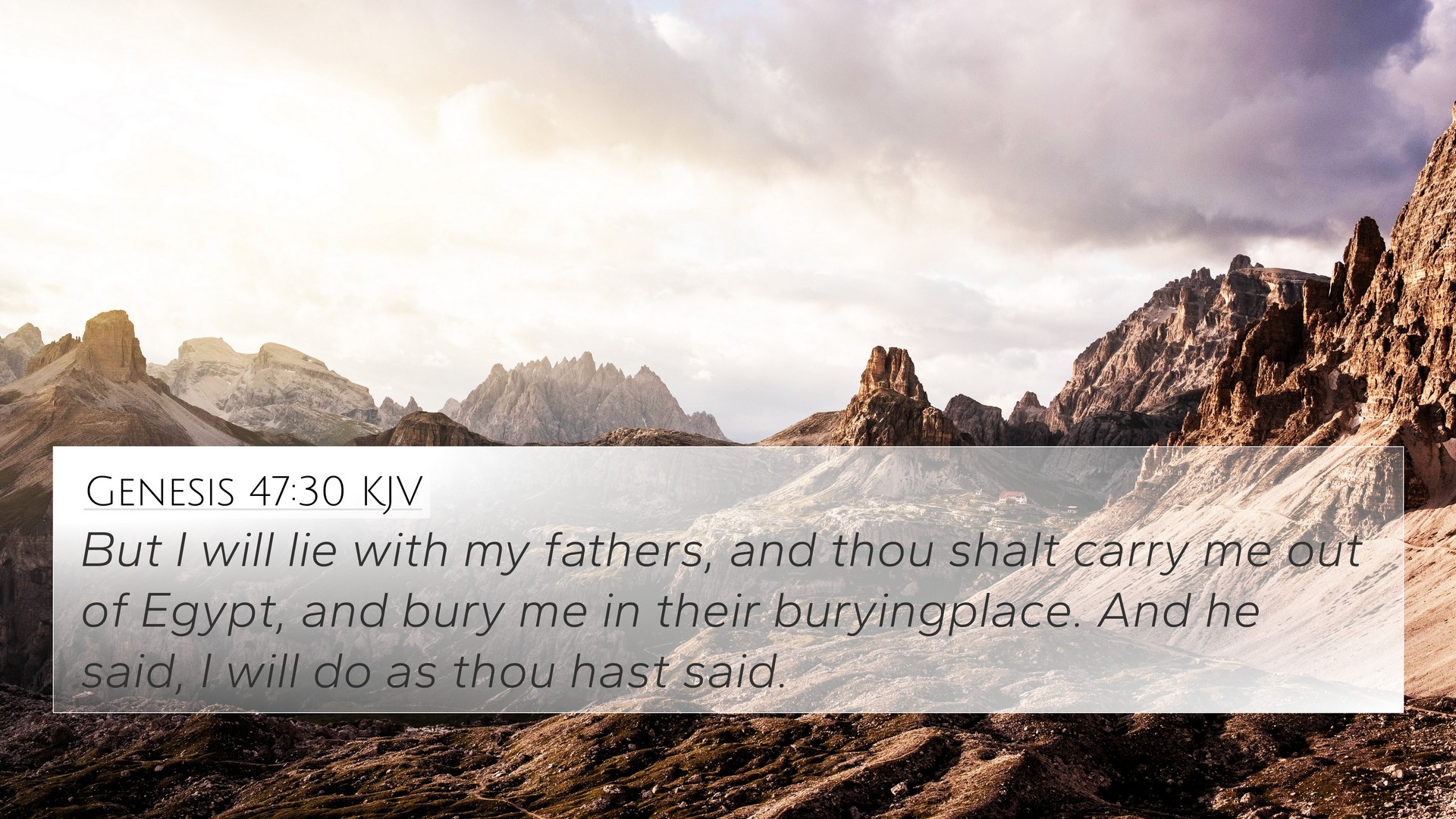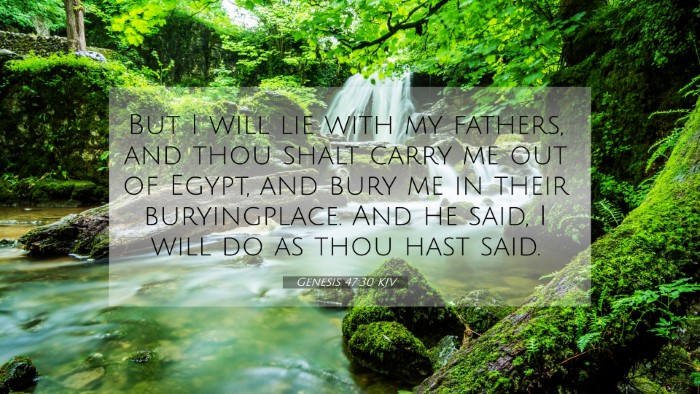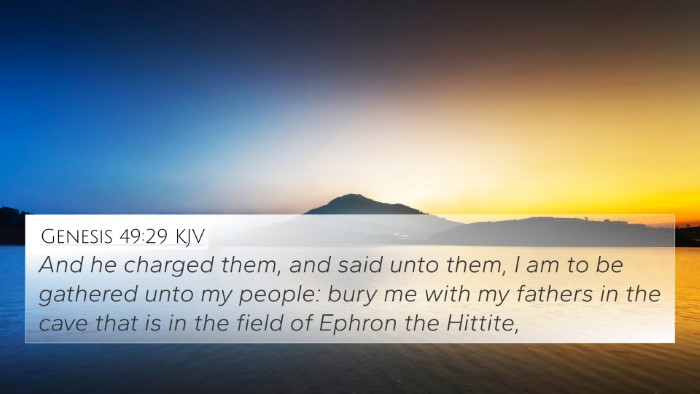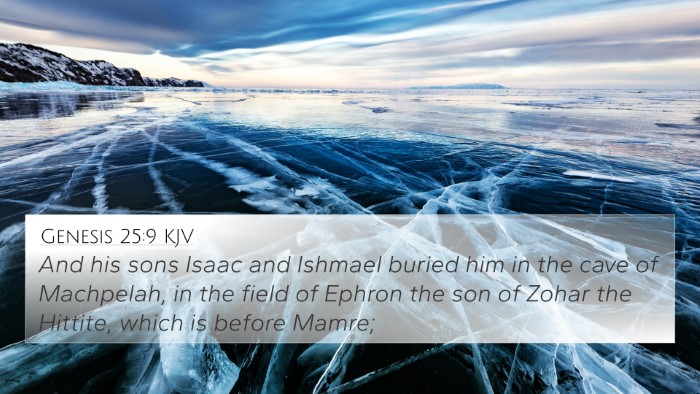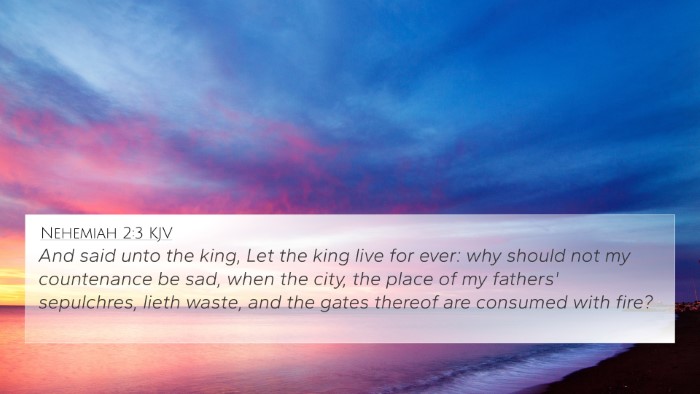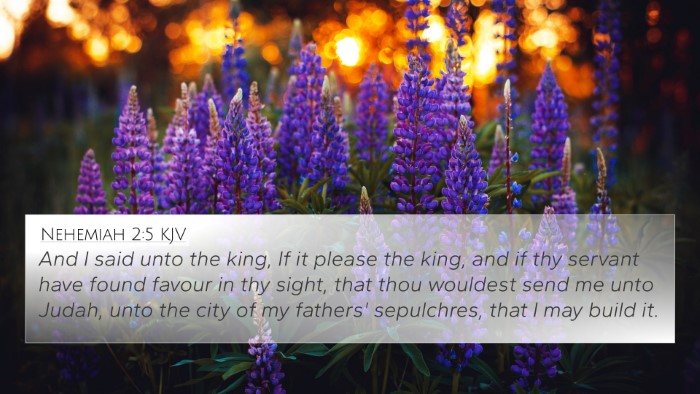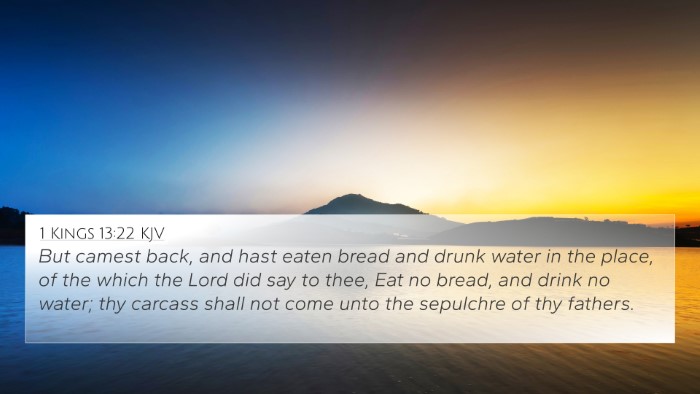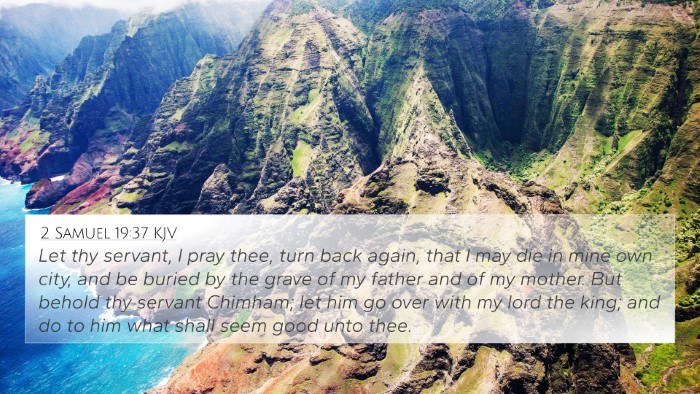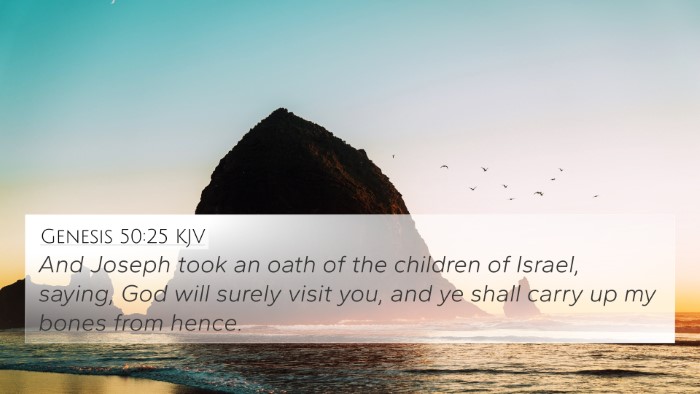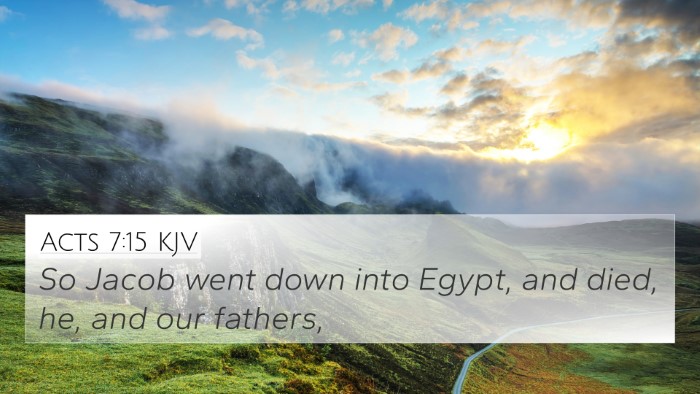Understanding Genesis 47:30
Genesis 47:30 states, "But when I sleep with my ancestors, carry me out of Egypt and bury me in their burying place." So he said, "I will do as you have asked." This poignant request from Jacob reflects deep themes of heritage, faith, and the promises of God, as documented in various public domain commentaries.
Commentary Insights
Matthew Henry's Commentary
Matthew Henry emphasizes the importance of burial places in the ancient world, signifying a profound connection to one's ancestry and homeland. Jacob's desire to be buried in Canaan demonstrates his unwavering faith and hope for God's promises. It shows his longing for the land that God had promised to his descendants, affirming the belief in divine providence and future restoration.
Albert Barnes' Notes on the Bible
Barnes interprets this verse as a significant moment in Jacob's life, illustrating the contrast between Egypt and Canaan. His request signifies a rejection of the idolatry and the temporary comforts of Egypt. Barnes notes that Jacob seeks to remind his family of God's covenant—a constant theme throughout the book of Genesis, which underscores the importance of remembering and fulfilling divine promises.
Adam Clarke's Commentary
Clarke takes a historical approach, explaining that Jacob’s burial in Canaan is a critical event that symbolizes the destiny of Israel. He points out that this request is not just a personal wish but is laden with national implications for future generations. Clarke illuminates how this request reinforces the theme of God’s faithfulness toward His people despite their current situation in Egypt.
Thematic Bible Verse Connections
Jacob's plea in Genesis 47:30 resonates with broader Biblical themes, found throughout both the Old and New Testaments. Below are notable cross-references that deepen the understanding of this verse:
- Genesis 23:19: The burial of Sarah in the cave of Machpelah, highlighting importance of burial spots tied to ancestral lands.
- Genesis 28:13-15: God’s promise to Jacob that the land he lies on shall be given to his descendants, affirming the significance of Canaan.
- Exodus 13:19: Moses taking Joseph's bones from Egypt signifies a continuation of the promise made to the patriarchs.
- Hebrews 11:9-10: Discusses faith and how patriarchs looked for a city whose builder is God, reflecting Jacob’s desire for Canaan.
- Joshua 24:32: Joseph's bones being buried in Shechem, reinforcing the commitment to honoring ancestral resting places.
- Genesis 49:29-33: Jacob specifically points out where he wishes to be buried, reinforcing the importance of his legacy.
- Matthew 8:11: Jesus referencing the "sons of the kingdom" eating with Abraham, Isaac, and Jacob, depicting hope in eternal connection to the ancestors.
- Romans 4:13; The promise to Abraham and his offspring, relevant as Jacob asserts the same promises to his descendants.
- 1 Peter 1:4: Discussing the inheritance reserved for believers, paralleling Jacob’s desire for legacy and inheritance in the land.
- Revelation 21:2: The ultimate promise of a new heaven and earth, tying the theme of God’s dwelling with His people back to Jacob's faith.
Conclusion
The request made by Jacob in Genesis 47:30 is rich with insight into his faith and the enduring promises of God. Each commentary provides a unique interpretation that contributes to a greater understanding of the text, emphasizing how crucial ancestry and divine promises were to the patriarchs. By cross-referencing these themes with other significant Biblical passages, we can appreciate the intricate web of promises that weave through the Scriptures. This not only enriches our understanding of Genesis but also aligns with ongoing Biblical themes of faithfulness, heritage, and divine providence.
Resources for Further Study
For those interested in deeper exploration of cross-references in the Bible, consider utilizing the following tools:
- Bible Concordance: A helpful resource for locating verses based on keywords.
- Bible Cross-reference Guide: Guides readers on thematic connections across different scriptures.
- Cross-reference Bible Study Methods: Techniques to comprehensively study biblical themes by linking related passages.
- Bible Reference Resources: Additional materials that aid in contextual understanding of verses.
- Comprehensive Bible Cross-reference Materials: Collections that organize passages for comparative analysis.
